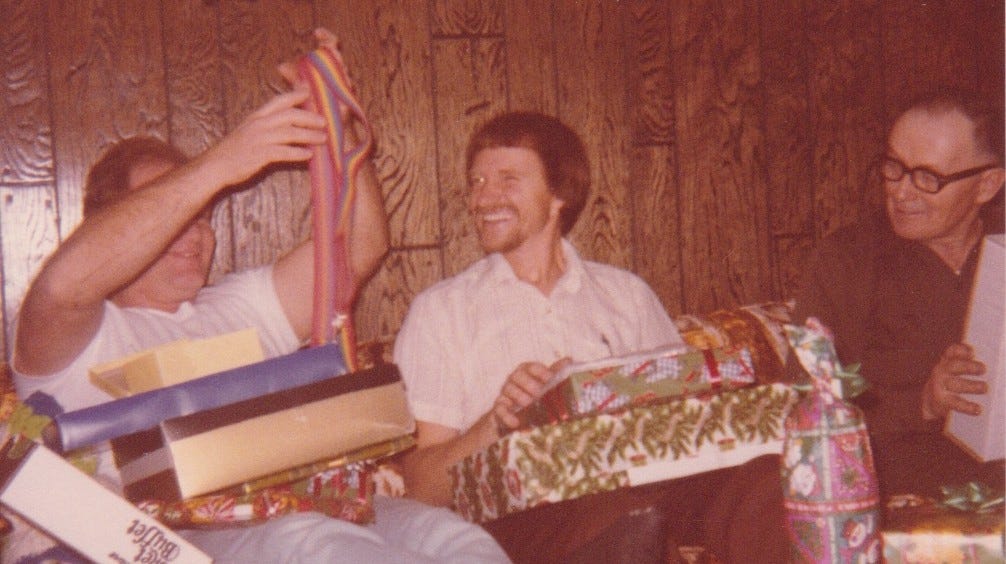Are you happy? That may seem like a very difficult question for you to answer.
When I first began talking to others about happiness, I was stunned to find that many people had difficulty answering that question. In some cases, people wanted me to define what it means to be “happy” before they would commit to an answer.
Others thought there must be some checklist that they could use to tick off boxes to discover if they were happy or not. I suspect that some folks were clearly not happy, but they didn’t want to admit that to themselves. Whatever the reason, some people found the question to be a challenging one.
Recently, I thought of another, possibly easier question, that might shed some light on the issue:
Have you had a happy life so far?
Looking back over your life thus far, what do you see? Do happy moments come flooding into your awareness or do you see mostly sadness, despair, and every “bad” thing that has happened to you?
If you had to rate your life up to this point on a scale of 1 to 10 with one being always unhappy and ten being always happy, what number would you choose?
I would currently rate my own life up to this point at about an eight or so. I used to say six or seven (to a low of 2 or 3 at certain points), but that number has risen in recent years. Can you guess why? (Keep reading to discover the answer!)
The idea of whether we are “happy” or not is purely subjective. If you believe you are happy, you feel happy. On the other hand, if you can only see the sad, the bad, and the mad parts of your life, you will undoubtedly feel unhappy most of the time. The good news is that, no matter what used to be or how unhappy you have felt in the past, you have the ability to create a happier future.
In my case, I believe that I’ve had a happy life and I think 8 out of 10 is pretty good (though I’m working toward 10/10!). To illustrate how one’s perspective can affect happiness (or not), I’ll explain how I have reframed a few events from my own life that most people would view as “negative” into happier ones:
I don’t focus on losing my dad to cancer when I was just 15 years old. I focus on the Fridays spent watching “The Dukes of Hazzard” with him, on playing softball with him1, and on watching him open the Christmas and birthday presents that I lovingly prepared for him.
I don’t focus on my mom’s difficult illness and death so much as on the times she taught me to sew, on our fun shopping trips together, and on the times we spent creating Christmas joy for our family together.
I don’t focus on the time I didn’t have with my brother before he died but rather on the times he picked on me (as all good big brothers do!), on our jokes about Cobol giving him hives2, and on the time we discovered we both love Michael McDonald’s music.
I don’t view my divorces as “failed” marriages. Rather, I feel extremely fortunate to have been married to two wonderful men and that, in both cases, the marriages ended amicably and without blame or anger. I have a wealth of joyful, positive memories of my marriages to draw from that “prove” that those were happy times for me.

The point of asking whether your life thus far has been happy vs. are you happy right now is that how you view your past is also how you view your present moments and — unless you find a new way forward — how you will view future moments.
If the grief of losing a loved one takes center stage in the movie of your past, you’re going to have a more difficult time being happy than will someone who primarily remembers the joyful moments they had with their now-absent loved ones.
If you remember the people and places you’ve lived with a barrage of joyful memories, you’ll be happier than someone who sees only the “bad” parts of those times.
If you feel your life thus far has been full of friendship, frivolity, and fun, you’ll be more likely to describe yourself as having those things now.
The details of our life matter in the sense that we do have to deal with the challenges we’re presented. But those details do not define our happiness because it is what we focus on that actually defines our happiness.
If your past feels unhappy, you are not doomed to an unhappy future. The way I increased my own happiness will work for you, if only you commit to doing it. (And, quite surprisingly, you might even begin to view your past in a more positive light.)
When I began engaging in the practices that I write about here at Primrose Ponderings, it changed my perception and outlook of my life. Learning how to “find” the positive aspects of my life has been instrumental in “making” me a happier person.
There is nothing unique about me and you can do the same. If your life thus far hasn’t been as happy as you wish, you have the ability to make the rest of your life happier. The first step is focusing on happiness as a goal and then learning how to rewire your brain so that it effortlessly views your life’s events in a positive way. The rest is just a matter of practice until viewing your life as “happy” becomes a habit.
Whether you are intensely unhappy and just trying to find a small bit of relief, or, if like me, you’re currently at an 8 or 9 and trying to reach a 10, focusing on happiness and what actually works to increase your happiness is the key. Your future will be as bright and happy as YOU choose it to be.
I actually hated playing sports, but I loved my dad more than I hated sports. When the opportunity arose for me to play softball with my dad, I did and I’ve never regretted it because it gave me quality time with him during the final year of his life.
When my brother took Cobol (a programming language) in college, he got literal hives. He joked that Cobol gave him hives and I laughed at him for allowing a class to make him physically ill. A few years later I took a Cobol class, as well. We both laughed when I told him, “Man, Cobol sucks! I now understand why it gave you hives!” :)






Tina, I never took a class that gave me hives, but many that upset my stomach. Excellent article. Last week in his sermon our pastor spoke of the hymn "It is well with my soul." He spoke of a horrible tragedy suffered by the author, Horatio Gates Spafford. All four of Spafford's children died in an accident at sea. He wrote this hymn shortly after their deaths. I had never heard the story behind the hymn, but glad I heard about this in our pastor's sermon.
Best wishes,
Peter